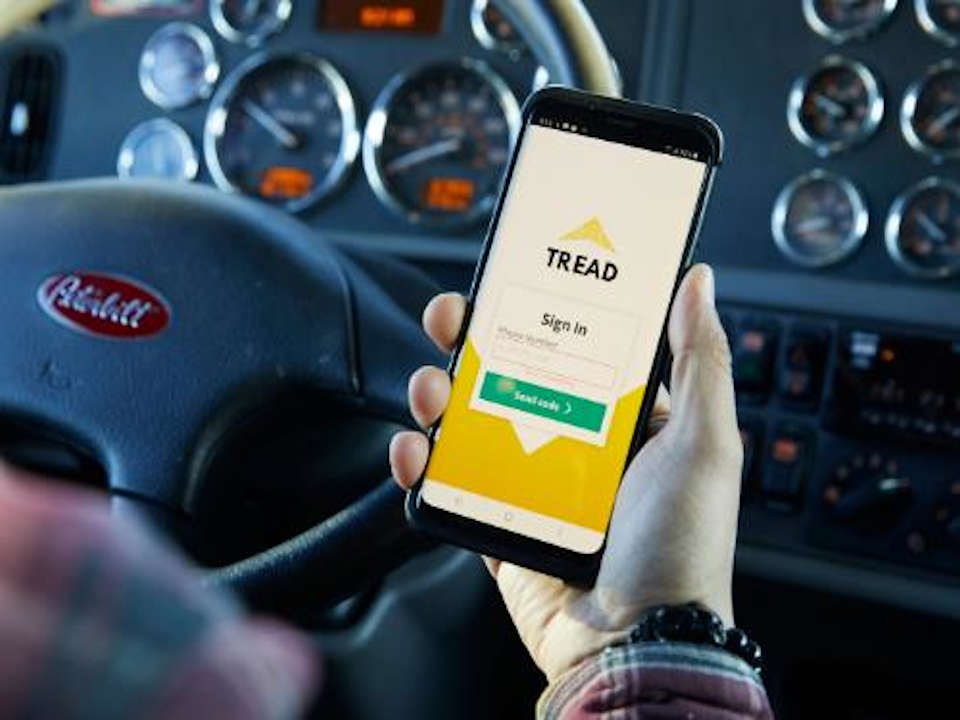News
Ticketless Trucking Dispatch Software is Booming Due to COVID-19

Firms offering digital solutions to facilitate truck dispatching are seeing growing sales as contractors and Departments of Transportation look for ways to prevent the spread of the virus during construction. “Over the last four weeks we closed more business than in the last four years,” says Tarun Nimmagadda, CEO of Ruckit, which sells trucking management software to help contractors and material producers move materials more efficiently.
Firms offering digital solutions to facilitate truck dispatching are seeing growing sales as contractors and Departments of Transportation look for ways to prevent the spread of the virus during construction. “Over the last four weeks we closed more business than in the last four years,” says Tarun Nimmagadda, CEO of Ruckit, which sells trucking management software to help contractors and material producers move materials more efficiently.
Paper tickets, part of the traditional process used to verify the delivery of dirt, aggregates and asphalt to a jobsite, have the potential to spread the virus. And with many support employees working from home, some firms and agencies are currently unable to access paper documents.
“The big problem is lack of visibility and information,” says Brady Murray, chief business officer at HaulHub Technologies, “Contractors have very little ability to know where their trucks are, and trouble booking all the transportation they need.” Digital solutions typically utilize a mobile phone app or other electronic device that allows contractors to issue e-tickets and access delivery-related information in real time, without time-consuming phone calls or paper processes.
Not only is it easier and faster to create e-tickets but data doesn’t have to be manually entered in an excel spreadsheet post-delivery. Invoices can be matched to digital tickets in minutes, allowing contractors to quickly identify and resolve billing errors. “About 20 percent of paper tickets will typically be disputed,” says Noah Dolgoy, CEO & founder of Tread, a digital platform for moving construction materials. “Our dispute rate is a decimal point above zero.”
“In civil construction, 40 percent of the cost is in the material,” says Nimmagadda. “If we can save 10-15 percent on the cost of transportation, we are making a big impact to these businesses.”
Quality control is another benefit for asphalt paving contractors. “Paving crews are expensive, so keeping the paver moving results in a better product, less paver downtime, and a higher potential for bonuses,” says Dann Rawls, Commercial Consultant, Construction Digital & Technology, Caterpillar Inc. “Visibility to the process creates opportunity to influence it.”
The latest progression in truck dispatching platforms provides insights that improve productivity. For example, the Ruckit platform can analyze data to deliver real-time recommendations that will optimize the number of trucks for a particular job. Similarly, Tread’s platform delivers cycle times, billing reports, compliance and optimization recommendations. HaulHub provides real-time truck optimization on every job, driver ratings, cycle times, billing and scheduling, and insurance compliance.
“Documentation and reporting increases accuracy of estimations and pre-project planning,” says Marcus Utterodt, product manager for Topcon Paving (Pavelink). He expects to see strong adoption levels of complete workflow systems among asphalt paving contractors.
trucking dispatch softwareQuestions to Ask When Selecting Trucking Dispatch Software
To help contractors and material producers decide on the trucking dispatch software that best fits their business, we asked suppliers what questions they should ask. Here’s what they said:
Will this solution work for every type of truck that we manage? According to Tom Webb, VP of products for HCSS, there are multiple options for tracking trucks, including GPS, RFID tags and mobile apps. “We believe you have to have the flexibility to accommodate different trucks and drivers.”
Will this solution handle the intricacies of how our business operates? Think about the types of places you transport material to and from. “You need a solution that has the flexibility of setting up permanent and temporary load sites,” says Webb.” This also relates to the types of drivers you hire, whether they are small owner/operators or large fleets. “In order to make it happen there needs to be something in it for everyone,” says Nimmagadda. Programs should easily integrate well with other software you use, such as Quickbooks or SAP.
What are we trying to accomplish? “There is fleet management and there is process management,” says Rawls. “If you are looking to just locate trucks, then truck tracking is the best solution. If you want paving metrics (process information) on top of that, then look for a solution that offers both, such as CAT eRoutes.” Topcon’s Pavelink also offers a complete workflow solution that includes work preparation, asphalt mixing plant, logistic, e-ticketing, job site info and Thermal Mapping information.
Will this tool strengthen my relationship with my partners? Dolgoy suggests contractors look at the way the company implements and supports their product. “When you use a tool that your partners have to use it reflects on you as a business. We make sure that our customer support and partnerships are on point,” says Dolgoy.
While only about 10 percent of contractors have adopted the technology, with COVID-19 the world has literally changed overnight. “We are really at a generational moment for our industry,” says Dolgoy. “If you look forward five years, construction material hauling is going to be unrecognizable.”



